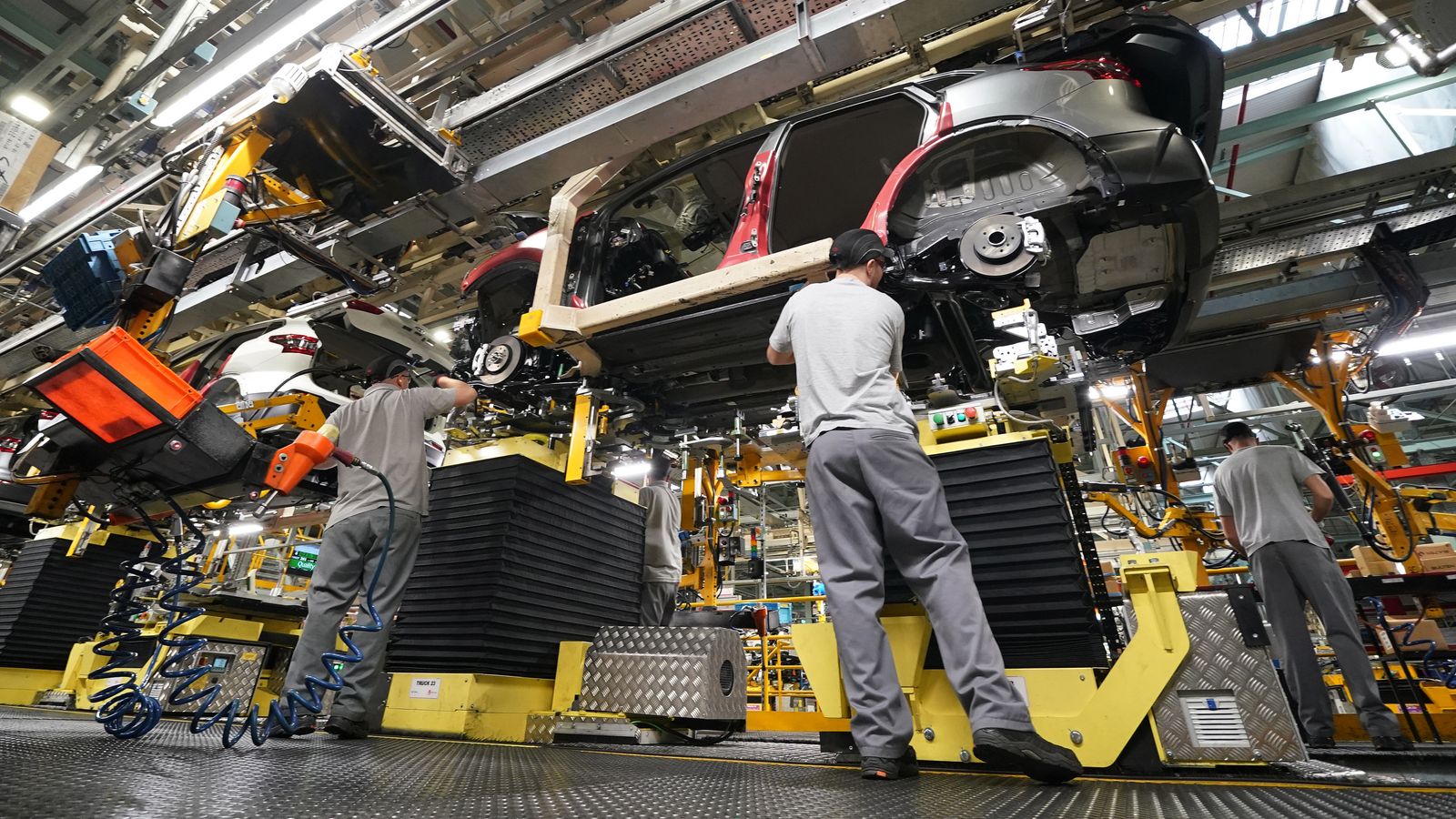Car production has risen for the third consecutive month in a sign component shortages may be easing, although the industry has warned of the impact of “alarming” energy cost rises.
A total of 58,043 cars were built in the UK in July, 8.6% more than during the same month last year, according to figures from the Society of Motor Manufacturers and Traders (SMMT).
This raised hopes that a global lack of parts such as semiconductors, which has disrupted car manufacturing, could be lifting, said the group.
Read more: Without these chips, we are in big trouble – and Britain has no strategy
But the SMMT warned the continued growth “must be set in context” given the comparison with the same month last year, which was the worst July in more than 60 years as carmakers wrestled with parts shortages and coronavirus-related staff absences, leading to many factories altering their summer shutdown timings.
Despite the recent increase in output, levels are still nearly half of pre-pandemic levels, highlighting that “full recovery is some way off”.
Production for the UK market surged 40.7% to 11,583 vehicles with exports also up, but by a more modest 2.8%.
UK imported no fuels from Russia in June while import of goods also dropped to £33m amid Ukraine war
Firms face ‘distress’ unless energy cost crisis tackled, warns CBI
Cost of living: UK economy edges closer to stagnation with factory slump
Shipments continued to drive the sector, accounting for eight out of 10 cars made, though exports to top markets the EU and US fell, down 7.3% and 22.8% respectively, while orders from China and Japan rose 54% and 40.1%.
Almost a third of all cars made in July were either electric or hybrid amounting to some 17,356 vehicles.
Subscribe to the Daily podcast on Apple Podcasts, Google Podcasts, Spotify, Spreaker
SMMT chief executive Mike Hawes said: “A third consecutive month of growth for UK car production is, of course, welcome and gives some hope that the supply chain issues blighting the sector may finally be starting to ease.
“But other challenges remain, not least energy costs which are increasing at alarming rates.
“If we are to attract much needed investment to drive the production of zero emission vehicles, urgent action is needed to mitigate these costs to make the UK more competitive for manufacturing.
“This must be a priority for the next prime minister else we will fall further behind our global rivals, risking jobs and economic growth.”








